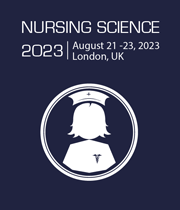Title : “Patients’ care excellence and peritoneal dialysis”
Abstract:
Peritoneal Dialysis (DP) is a method of great value in the treatment of End Stage Renal Disease (ESRD) but, in the Italian context, it is a "marginal" dialysis which has however led its professionals to develop excellent skills in the context of the Italian nursing profession.
In 2005, “EDTNA/ERCA ITALY” (today SIAN) promoted national research “on the ratio nurse/no. patients in peritoneal dialysis services in Italy”, highlighting the functions and role of the nurse.
The areas in which PD nurses operate are extremely diversified: from the clinic to hospitalization, at home and in social residential contexts, confirming the ability to adapt one's professionalism to health needs, promoting and guaranteeing continuity of care, realizing, already in the past decades, the integration between hospital and territory.
A continuum that begins in the pre-dialysis phase, continues with training in the method and management of the disease, following the person even at home and finally, passing through any complications, reaching the transplant or, where it is not possible, accompanying the person and the family in the most difficult of paths, that of the end of life, becoming a figure of very strong and irreplaceable reference.
Empowerment of the patient, enhancement of the family and of the figures who contribute to the treatment path, are objectives concretely achieved by pursuing the physical and above all social rehabilitation of the person, in their own life context.
In recent years, the nursing and medical professions have worked side by side to build the "value of health", believing that it is one of the greatest values that a modern society can aspire to for its citizens/patients.
Ten years after the publication of the article "Patients' care excellence and peritoneal dialysis" it can be said that PD nurses have developed a model of "taking charge" consolidating it even before it was assumed as the main paradigm of health care reform currently underway in Italy.
The main aspects that can be transferred to other clinical contexts are the ability of the DP nurse to be Care Manager and Case Manager at the same time, with a view to long care, integrating with all the services that can support the person, in his disease course.
These specific skills are related settings, specific study paths can provide knowledge but only the implementation in the field allows them to be transformed into expert skills, in a unique "sense making" in relation to the single person.
It is hoped that research, in the future, will be able to measure the outcomes of "Care in Peritoneal Dialysis", as a result of a process and not of a single service, by borrowing the indicators of the National Outcomes Program, restoring dignity to a method and its professionals which, for some time now, have been a concrete example of the feasibility of that "welfare state" model which places the person at the center of all the services that come together to respond to their need for health, not just for the treatment of their pathology.


